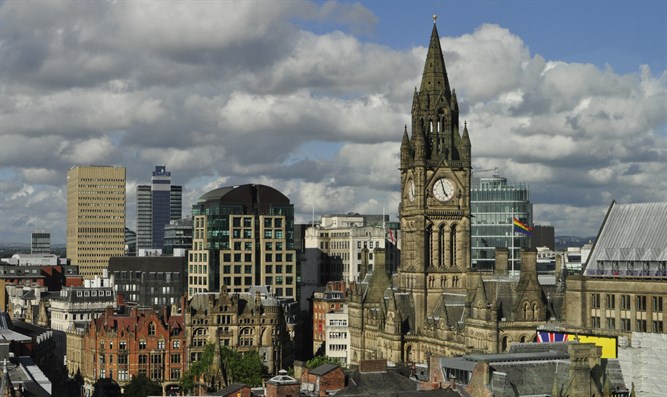The show featuring opening statement about “standing with Palestine” is accused of inflammatory language and representations of Israel.
A well known British art gallery has been accused of curating a hate filled anti-Israel art exhibit.
The Whitworth Art Gallery, part of the University of Manchester and with a collection of approximately 55,000 items, held an art show called “Cloud Studies” by Forensic Architecture, a researched agency the bills itself as “investigating human rights violations including violence committed by states, police forces, militaries, and corporations.”
The show claimed to explore the environmental impact of Israel’s military on Gaza and Judea and Samaria, as well as examining “toxic clouds” in countries such as Lebanon, Turkey, Argentina, Hong Kong, the UK, the US and Mexico, reported the Jewish Chronicle.
Visitors to the exhibit saw an opening statement that said “Forensic Architecture stands with Palestine” and were shown films and displays that examined how “tear gas, bomb clouds, chemical weapons… suffocate entire neighborhoods; and air pollution targets the marginalized.”
Anti-Israel statements such as “struggle against apartheid” and “settler colonial violence” featured prominently in the display.
Advocacy group UK Lawyers for Israel sent a letter to the vice-chancellor of Manchester University, reported the Chronicle. They expressed concern noting to the vice-chancellor that the gallery is “legally bound by the Public Sector Equality Duty.”
They were especially troubled by “the impact of the inflammatory language and representations contained in the exhibition on the Jewish people in Manchester.”
The director of Forensic Architecture (FA) Eyal Weizman, who was born in Israel, defended the exhibit against the criticism it had received.
Weizman told the Chronicle that he disagreed with those who said the exhibit’s inflammatory content could endanger the Manchester Jewish community.
“I disagree with those that say so: like anti-Palestinian racism, we oppose and condemn anti-Semitism, and wrote so in our statement,” he said.
He added that the presentation did “more to dispel prejudice and hatred, including that against Jews, than an unqualified support of apartheid in Palestine.”
A visitor to the art gallery was quoted telling the Chronicle that they didn’t “remember experiencing anything so hate-filled in an art gallery. The information is totally decontextualized and there is no mention of Hamas or the reasons for the conflicts.”
(Arutz 7).
